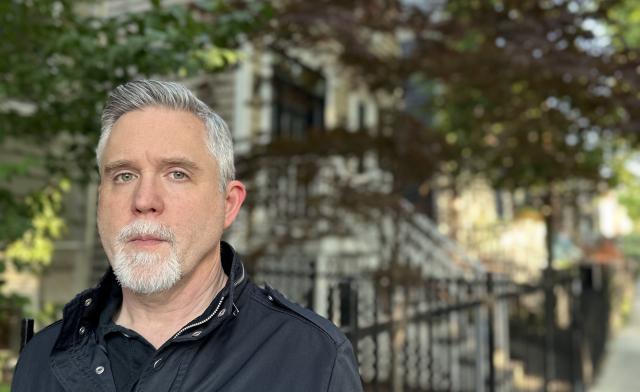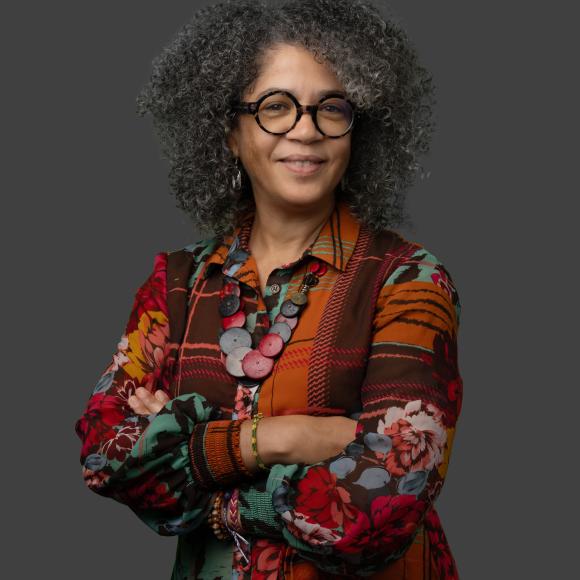Each year, for more than a decade, the Civic Leadership Academy (CLA) at the University of Chicago Harris School of Public Policy has brought together a select group of government and nonprofit leaders to reflect, connect, and work to strengthen their impact on the city of Chicago. Now under the leadership of Professor Christopher Berry and Dr. Milvia Rodriguez, the program is embarking on training its 12th cohort of rising stars from throughout Chicago and Cook County.
A six-month leadership development program designed for high performers in Chicago and Cook County, CLA has fellows learn from and engage with distinguished UChicago faculty in an interdisciplinary curriculum that explores leadership foundations, institutional reform, and the practical application of ideas.
Professor Berry, who also serves as director of the Mansueto Institute for Urban Innovation, was named CLA faculty director in February 2025. We sat down with him and Dr. Rodriguez, now CLA executive director and program director for UChicago’s undergraduate policy major, to learn more about their vision for CLA, the values that will remain at its core, and the opportunities they see ahead.
Q: For those who might not be familiar, how do you describe the Civic Leadership Academy?
Christopher Berry:

I’ve taught in CLA since the beginning, but last year, in preparation for my new role, I actually went through the entire program myself. That gave me a new appreciation for how distinctive and, in many ways, unusual it is. At its heart, CLA is a community of more than 330 alumni motivated by the public good. Fellows spend time not just learning techniques, but really introspecting about leadership, what it means to them, and how they can achieve their goals most effectively.
Much of the fellows’ experience while in the program centers on hearing people with very different perspectives on leadership share their views, with the goal of generating a conversation amongst themselves. Though they are learning from some of best minds UChicago has to offer, it’s that dialogue with each other, in response to the lectures and the speakers, that's really the heart of CLA.
Milvia Rodriguez:

From the outside, I’ve always admired how deeply connected fellows feel during and after the program. CLA creates a space where people can be honest about both their work and personal experiences. It’s about being cared for, being supported, and exchanging ideas freely. Seeing how people grow in six months, and stay connected as alumni, and bring those new skills and connections back to their workplaces is what makes the program so impactful to me.
At the same time, it’s gratifying to see how valued this program is by local employers, and by the civic leaders across the city. Fellows do not just hear from academics, but also from Cook County Board President Toni Preckwinkle, Mayor Brandon Johnson (and Lori Lightfoot before him), and other key policymakers who can see how beneficial the experience is for the fellows themselves, as well as the organizations they’re part of.
Q: Who is the ideal candidate for CLA?
Berry:
We focus on government and nonprofit leaders in Chicago and Cook County, but what matters most is mindset. A CLA fellow needs a willingness and openness to hearing viewpoints from others who they may disagree with, and an interest in having a conversation about those disagreements. They also need a willingness to reflect on their own leadership, their motivations, their styles, their strengths, their weaknesses.
Rodriguez:
I’d add that they need a passion for Chicago and Cook County. Fellows are curious about the city beyond their own office or nonprofit, eager to learn from others, and willing to be challenged. And they’re excited to learn from UChicago faculty – people you wouldn’t expect in a leadership program, like historians or theater directors, who make you think differently.
Q: How does the program build connections across sectors?
Rodriguez:
Alumni often say the biggest impact is discovering unexpected collaboration. Someone might think, “I only do this one job, and this is my little cubicle,” but CLA shows them how their work connects to others’. Suddenly they see possibilities for partnerships they never imagined. Now they think, “I know that I can talk to this person in this other office, and maybe we can do something together. At the very least, they can help me think about my own work in a different way.”
Berry:
Exactly. In one recent cohort, we had a police detective, a staffer from the Civilian Office of Police Accountability, and someone from CRED, a neighborhood violence intervention group. These are folks that might not ordinarily collaborate in their day-to-day work. But they're all part of CLA. They're all engaged in these same discussions. They get to know their peers and come to understand what the others are facing. CLA brings these professionals together – who often have the same objectives – who probably don’t work together, but almost certainly should in service of resolving our city’s challenges.
Or take someone from Sanitation connecting with someone from Asset Management because they both face common obstacles. That kind of bonding is powerful.
Q: What should people expect under your leadership?
Berry:
First, continuity. If it isn’t broken, we’re not fixing it. Fellows should expect the same core experience. That said, we’re building on the strong foundation by engaging alumni more directly. For the first time, we’re launching an alumni advisory board to keep the community active long after graduation. The fellows have already done great things for their city, and the alumni network is 330 people who have gone through this rigorous leadership experience and who are now applying it to public policy.
The essence of CLA is not changing. It will remain about community, reflection, and learning from remarkable voices across the University. And it will remain a springboard for leaders who want to make an even more meaningful impact for our city and county’s residents.
Rodriguez:
My focus is on deepening relationships. I want to strengthen the connections fellows make during CLA, highlight their work, and support them beyond the program. With my Harris experience and roots in Chicago, I can bring some new perspective. I’m also excited to think globally, connecting CLA to conversations beyond the city while still keeping Chicago at its center.
Berry:
My work has been very focused on the City of Chicago. One of the things I’ve always prioritized is engagement with the city and county, whether it’s through my research on property taxes or my work at the Mansueto Institute for Urban Innovation. CLA is a perfect expression of that commitment. It’s not just theory—we’re creating a space where government and nonprofit leaders who are working on the front lines of urban challenges can step back, learn from one another, and think critically about the institutions that shape the city.
For me, CLA is part of a broader effort to make UChicago a more outward-facing institution, one that is deeply invested in the success of its home city while also contributing lessons to urban policy debates worldwide.
Q: What should prospective fellows know before they apply?
Berry:
They’ll be joining a network of more than 330 alumni who remain a tight community, building a lasting network that continues to shape and strengthen Chicago’s civic landscape. And they should know it’s personally transformative. It’s not just about professional skills—it prompts people to reflect deeply on why they do the work they do. It renews a fellow’s enthusiasm for public service.
And, practically speaking, there’s one rule everyone should understand: no phones. We meet every other Friday, all day. At first that feels daunting, but fellows consistently say it’s quite liberating.
Rodriguez:
Exactly. Alumni even ask us to recreate that experience after graduation. It’s intentional time for growth, something we rarely get in our working lives.
Q: One last word on the fellows?
Rodriguez:
These fellows are exceptional. In my life, I like to support good programs and good people. These are great people, the best that Chicago has. Just being part of that community is exciting for me. I am honored to support them and the work that they do.
Berry:
I’m looking forward to learning about leadership aside the next cohort!
This article was originally published by the Harris School of Public Policy.
